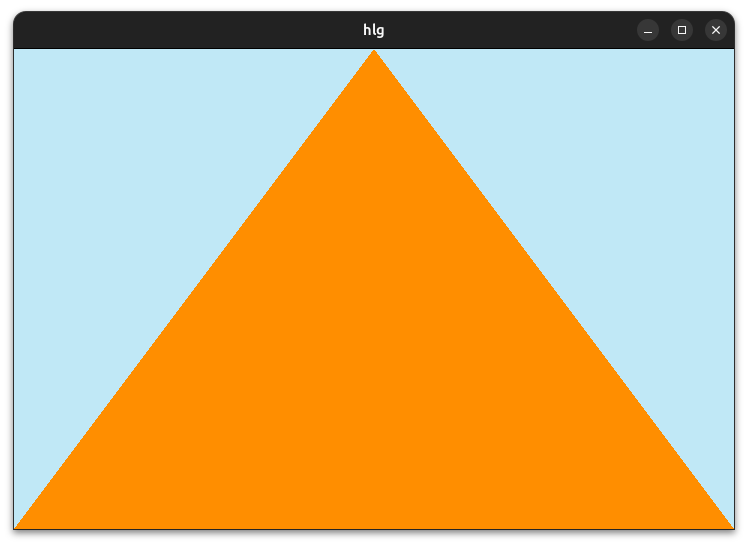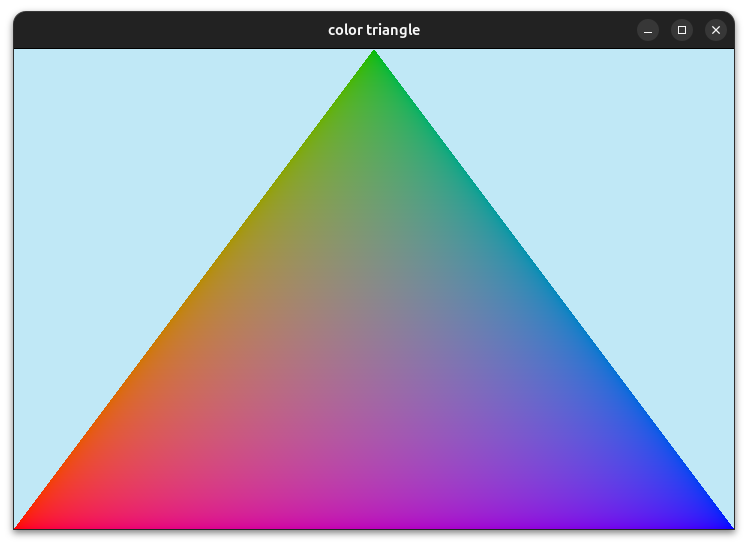This project is a WIP. The goal is to make a high level graphics api for golang.
Documentation: https://dfirebaugh.github.io/hlg/
check the ./examples dir for some basic examples
package main
import (
"github.com/dfirebaugh/hlg"
"golang.org/x/image/colornames"
)
var triangle hlg.Shape
// update operation need to happen less frequently than render operations
func update() {
}
func render() {
hlg.Clear(colornames.Skyblue)
triangle.Render()
}
func main() {
hlg.SetWindowSize(720, 480)
hlg.SetScreenSize(240, 160)
triangle = hlg.Triangle(0, 160, 120, 0, 240, 160, colornames.Orangered)
hlg.Run(update, render)
}package main
import (
"image/color"
"github.com/dfirebaugh/hlg"
"golang.org/x/image/colornames"
)
var triangle hlg.Shape
// update operations happen less frequently than render operations
func update() {
}
func render() {
hlg.Clear(colornames.Skyblue)
triangle.Render()
}
func main() {
hlg.SetWindowSize(720, 480)
hlg.SetScreenSize(240, 160)
triangle = hlg.PolygonFromVertices(0, 0, 0, []hlg.Vertex{
{
Position: [3]float32{0, 160, 0},
Color: toRGBA(colornames.Red),
},
{
Position: [3]float32{120, 0, 0},
Color: toRGBA(colornames.Green),
},
{
Position: [3]float32{240, 160, 0},
Color: toRGBA(colornames.Blue),
},
})
hlg.Run(update, render)
}
func toRGBA(c color.Color) [4]float32 {
r, g, b, a := c.RGBA()
return [4]float32{
float32(r) / 0xffff,
float32(g) / 0xffff,
float32(b) / 0xffff,
float32(a) / 0xffff,
}
}
